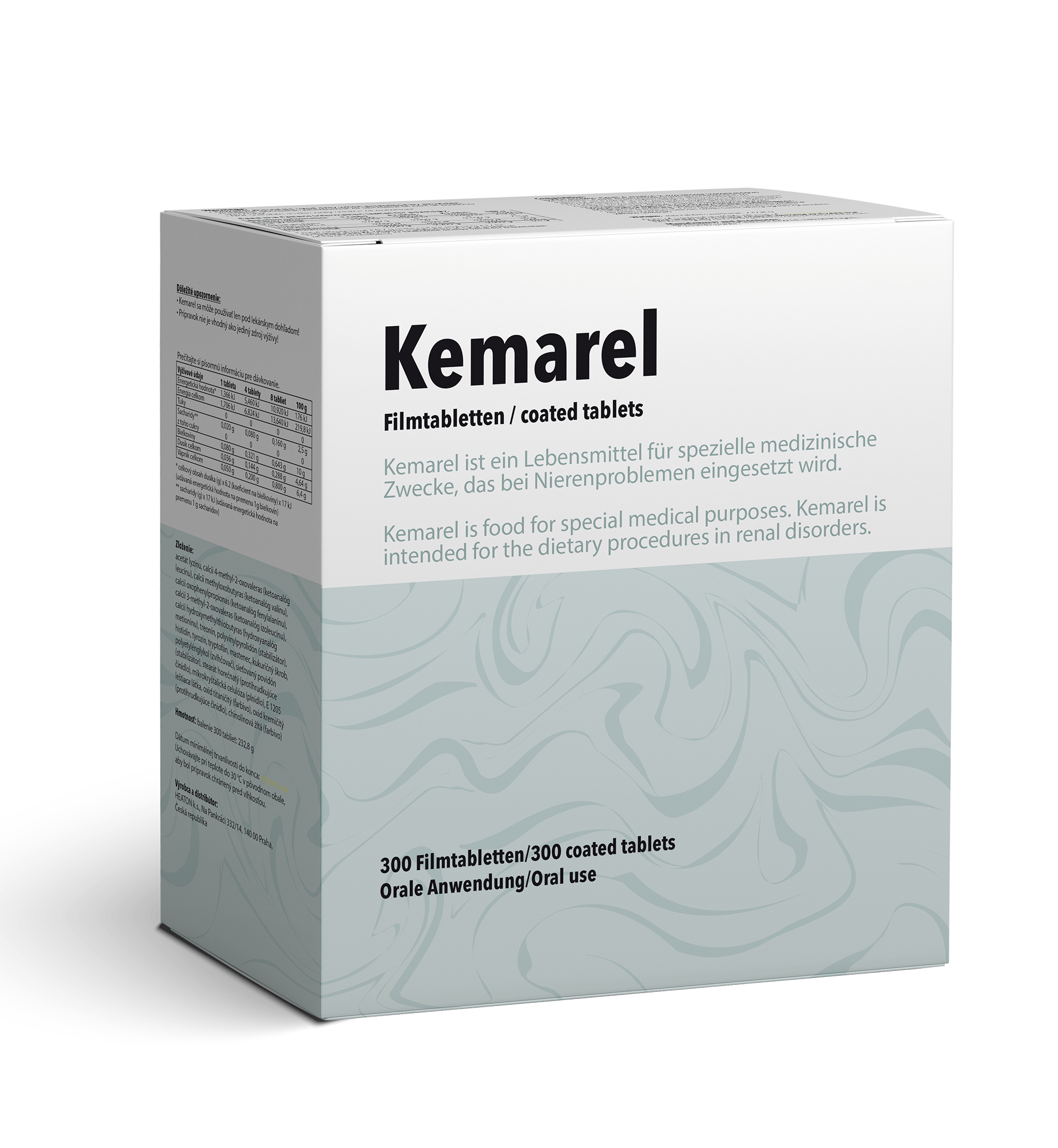Nutrition therapy for patients with renal disorders Kemarel contains amino acids, partly in form of there corresponding-ketoanalogues,
Kemarel is food for special medical purposes. Kemarel is intended for the dietary procedures in renal disorders.
It contains essential amino acids lysine, threonine, tryptophan, histidine and tyrosine and ketoanalogues to isoleucine, leucine, phenylalanine, valine and hydroxyanalogue to methionine.
Kemarel allows the intake of essential amino acids while minimizing intake of amino-nitrogen.
Description of properties and characteristics
Following absorption, the keto- and hydroxy-analogues are transaminated to the corresponding essential amino acids by taking nitrogen from non-essential amino acids, thereby decreasing the formation of urea by re-using the amino group. Hence, the accumulation of uraemic toxins is reduced. Keto and hydroxy acids do not induce hyperfiltration of the residual nephrons. Keto-acid containing supplements exert a positive effect on renal hyperphosphataemia and secondary hyperparathyroidism and renal osteodystrophy may be improved. The use of Kemarel in combination with a very low protein diet allows to reduce nitrogen intake while preventing the deleterious consequences of inadequate dietary protein intake and malnutrition.
Kemarel is used for decreasing the damages due to faulty or deficient protein metabolism in chronic kidney disease in connection with a limited dietary protein intake of 40 g/day or less (adult). Usually this applies to patients whose glomerular filtration rate (GFR) is less than 25 mL/min.
Posology and method of administration
If not otherwise prescribed the dose for adults (70 kg body weight) is 4 to 8 tablets three times daily during meals. Ingestion during meals facilitates proper absorption and the metabolisation into the corresponding amino acids. The tablets must not be chewed. Kemarel is administered as long as the glomerular filtration rate (GFR) is below 25 mL/min, and concomitantly, dietary protein is restricted to 40 g/day or less (adult). No experience has been gained in paediatric patients.
Read the Patient information leaflet for posology.
Mandatory information



 Čeština
Čeština  Slovenčina
Slovenčina  Română
Română  Deutsch
Deutsch